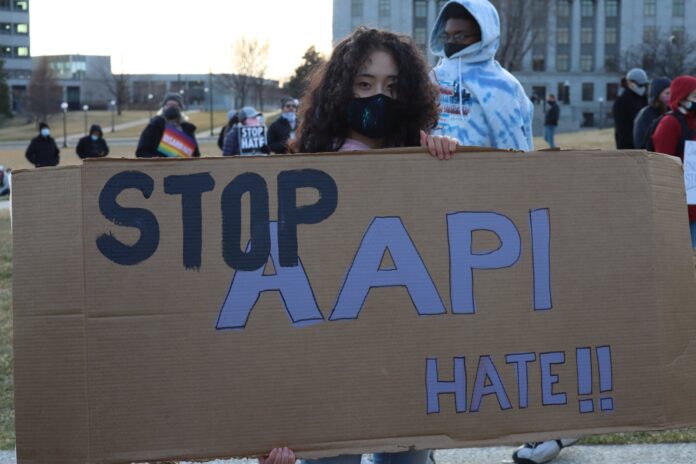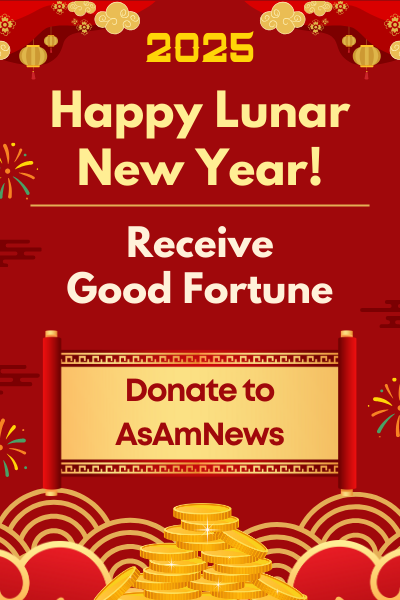by Wayne Chan
If you believe my wife Maya or son Tyler, apparently I have a lousy memory.
How do I know that? Well, probably because they keep saying things like, “You can never remember anything!”.
I can understand why they’d think that way. There are a few Italian restaurants that we frequent. But, I can never remember their names. But, that’s not really my fault.
You see, here are the names of the restaurants (I looked them up for the sake of this column):
- Villa Capri
- Capri Blu
- La Cucina de Capri
You’ll notice that each restaurant has the word “Capri” in it. I don’t speak Italian, and even for the purposes of this column, I didn’t look up to see what it means. Therefore, it means nothing to me. So, I’ve never bothered to remember the names. When I want to go there, I just say something like, “Let’s go to the Italian restaurant next to Target.” Or “Let’s go to the Italian restaurant where we sat by that huge dog out on the terrace that one time.”
I trust Maya will know which Capri I’m talking about.
Something in the headlines made me realize that what may be the key to remembering things is that it has to mean something to you.
If you’ve been following the news recently, you know there’s been a lot of tumult surrounding President Trump proclaiming that Vice President Harris just recently started announcing that she was black, after (wrongly) stating that she always considered herself Indian American.
It brought back a memory of mine that reminded me that we are all who we are, and it’s not something we can just decide.
I was in the fifth grade. Two of my best friends at the time were named David and Jeff. They, along with nearly everyone in my elementary school, were white. Of course, except for me.
The three of us got along really well. But, I’d say that what brought us together was that the three of us were really good at playing tetherball. Tetherball, for those who haven’t played, is where two people stand around a poll and hit a volleyball tied to the poll to see who can wrap the ball all the way around the poll in one direction or the other.
David, I remember, was particularly good at it. Once he got started, he could tap the ball repeatedly as it swung around the pole and keep it completely out of reach from his opponent. My technique was basically to hit the ball so hard that it would swing around the pole four or five times before my opponent could even touch it.
We were the kings of recess tetherball.
One day, at the end of recess, Jeff announced that he had learned a new word for me. The word was “chink.”
He was amused with this new word. With a smile on his face, he’d shout, “How’s it goin’, chink?” At first, I tried to laugh it off. But then, when David heard it, he started in too.
For the next few weeks, I was bombarded with the word.
They thought it was hilarious. They thought it was especially funny when they would address me with something fairly mundane and end it with that word. Something like, “Did you finish all your homework today, CHINK?” Or “What did you bring to lunch today, CHINK?”
They would double over in laughter each time.
On one of the last days of school before summer break, the two of them were pretty relentless. I tried to play it cool, but there was nothing I could say that would make them stop.
And then I heard, “Go back to where you came from, Chink!”
I remember it as if it were yesterday. I turned away from them because I didn’t want them to see me cry.
After a moment, I thought to myself – I’m ten years old. I’ve never even been to China. At the time, I’d never really been out of the state.
I didn’t see them during summer break. I really didn’t want to. When we came back for 6th grade, I’d see them at class, and by that time, the taunting had stopped. But so had the tetherball and any friendship at all.
Can you simply chalk it up to the juvenile behavior of some kids? I don’t.
All I can say is, I still remember agonizing over the thought that these two were my best friends, and for the first time in my life, I felt like an “other”. It’s been 45 years, and while I love my life with friends and family that I truly cherish, that pain from my childhood has stayed with me all this time.
It’s a memory I’ll never forget.
AsAmNews is published by the non-profit, Asian American Media Inc.
Happy Lunar New Year. We’re almost there. We are now 68% of our goal of meeting our $5,000 matching grant challenge with less than 7 full days to go. Every donation will be matched dollar for dollar through Sunday for up to $5,000. All donations will go toward fully funding an editor position at AsAmNews and to support our reporting. You can make your tax-deductible donations here via credit card, debit card, Apple Pay, Google Pay, PayPal and Venmo. Stock donations and donations via DAFs are also welcomed.
Please also follow us on Instagram, TikTok, Facebook, YouTube and X.



Oh, I totally understand that pain and memory. I’m so sorry you had to experience that from people you thought were friends.
I’m half Japanese – I was born in Tokyo to a Japanese subject (mom) and White U.S. citizen (dad). I don’t look very Japanese. My dad was in the US Air Force, and when I was 9 (mid-1960’s) we were transferred from Japan to Tacoma, Washington. That fall, riding the bus to school, a 9th grader (I was in 4th) started bad-talking “Japs.” I asked him to stop. He knew my mother was Japanese, his kid sister was in my class. He started calling my mother nasty racist names. Then he called me a Jap sorehead. At that point, my 2nd grade kid sister leaped at him and scratched him. When another student claimed I had started a riot on the bus, the Principal talked to me. I told him what happened, and the 9th grader was suspended for three days, while my sister and I weren’t punished at all. For the next four years, the boy’s sister and her friends made my life hellish. I suffered a lot of small injuries that the instigators always called accidents and they got away with them every time. My left little finger is still crooked from being broken in 7th grade. I will not willingly return to Washington, especially Tacoma, because of what happened. Those horrible racist words hurt deeply.
During my years as a school librarian in the Florida Panhandle, I have had to stop White kids from making fun of their Vietnamese, Chinese, and Latin American classmates – and from writing racist remarks in their homework. Ugh, this stuff doesn’t stop.
Those aggressions go down deep. I’m glad you have found family and community, and expression. The new film DIDI showcases similar experiences.
MOSF 19.8: “Didi”: Insecurity, Dissociation, Cringe, and Sense of Self (EAAPAAO Part 6) (Everything Asian American Psychology All At Once Part 6)
https://eastwindezine.com/mosf-19-8-didi-insecurity-dissociation-cringe-and-sense-of-self/
I remember a similar incident. A new kid joined our small group of friends in grade 9. I was only Chinese in the group. One day we were walking home from school when came across an old Asian lady. The new kid started making mocking ching chong talk to her. The old lady told him to f**K off. He was amused. All the others laughed along with him. I felt ashamed. I stopped being friends with them, never saw them in summer and did not hang out with them in Grade 10 or anybody else. I started to hate. In grade 11, I was lucky enough to transfer to a high school that had more diversity & continued to be angry.